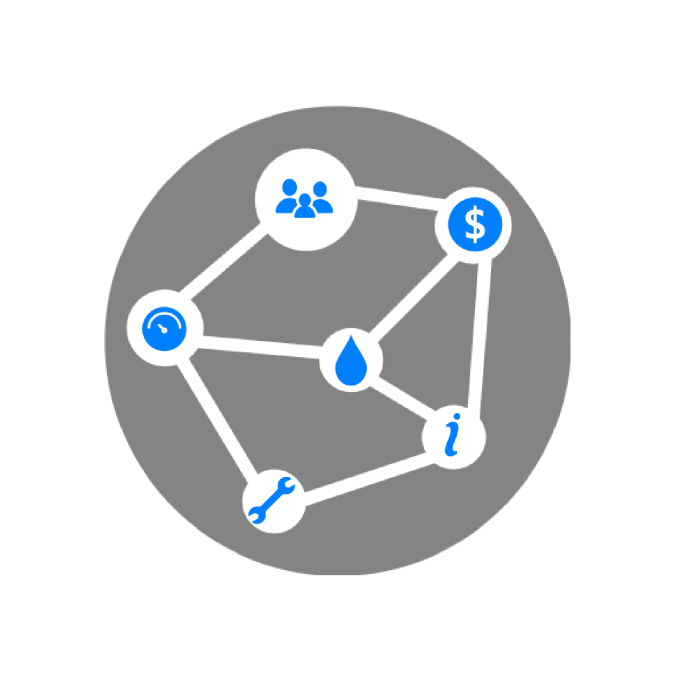Post originally published by the US Water Alliance
Now is a time of growing uncertainty and change in the water sector. Meanwhile, there are tens of thousands of water utilities and authorities in the United States. Collaboration will be essential to securing our nation’s water future. As the adage goes, there’s strength in numbers.
Consolidating water utilities is one of many options communities may consider to pool resources, streamline decision-making, and increase efficiency. While complex, consolidation may be an appropriate consideration when the community value proposition outweighs costs. Leaders need access to more information about the financial effects of consolidating water utility service to assess their options.
To meet that need, the US Water Alliance and the UNC Environmental Finance Center are releasing a new report, Strengthening Utilities through Consolidation: The Financial Impact. This report synthesizes the existing body of evidence and presents eight case studies from communities who have consolidated utility service in different ways and contexts. Continue reading

 Mary Tiger serves as the Sustainability Manager at the Orange Water and Sewer Authority (OWASA). She is a 2009 graduate of the UNC Master of Public Administration program, and worked as an EFC research assistant during her time as an MPA student from 2007 to 2009. Before starting the MPA program, Mary worked as a utility conservation coordinator for a Colorado water, wastewater, and power utility.
Mary Tiger serves as the Sustainability Manager at the Orange Water and Sewer Authority (OWASA). She is a 2009 graduate of the UNC Master of Public Administration program, and worked as an EFC research assistant during her time as an MPA student from 2007 to 2009. Before starting the MPA program, Mary worked as a utility conservation coordinator for a Colorado water, wastewater, and power utility.


